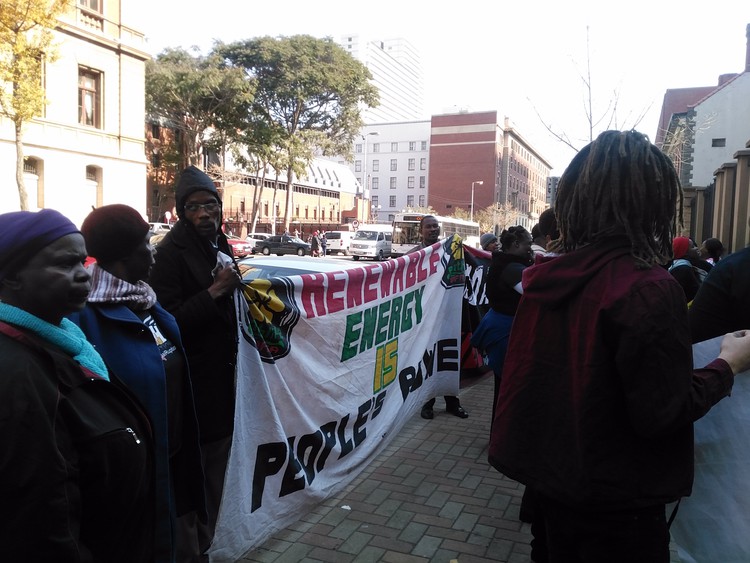Mining postponed in water-sensitive Mabola area
Civil society organisations reach agreement with Atha-Africa Ventures
Civil society organisations have reached an agreement with government and mining company Atha-Africa Ventures that effectively postpones the commencement of mining activities in the Mabola Protected Environment in Mpumalanga.
On Tuesday the North Gauteng High Court heard an application to grant an interdict against the commencement of mining operations scheduled for 28 June 2017. The court sent the parties into a negotiation process to decide on an acceptable postponement of mining operations. The outcome of this negotiation — which went on well into the evening — was that Atha-Africa agreed to provide three-weeks notice to the opposing civil society coalition before commencing any mining activities in the areas, and to await the outcome of various other legal processes required before doing so.
The Mabola area was granted protected status in 2014 in part because it acts as a watershed for three of South Africa’s most important rivers and has downstream impact across large swathes of the country. According to the coalition opposing the mining: “It will threaten water security not only in the local area, but in the region. The damage that this mine would do to water resources cannot be undone”.
The departments of Environment and of Mineral Resources, along with local and provincial governments, granted permission to Atha-Africa Ventures to mine coal in the protected area in 2016. They argued that the need for both coal and local investment makes it necessary to circumvent the land’s protected status and that this can be done without undermining the purpose of that protected status.
Each of the steps required to grant these permissions has been opposed by the Centre for Environmental Rights on behalf of a coalition of eight non-profit civil society and community groups: Earthlife Africa Johannesburg, the Mining & Environmental Justice Community Network of South Africa, the Endangered Wildlife Trust, BirdLife South Africa, the Federation for a Sustainable Environment, the Bench Marks Foundation, the Association for Water and Rural Development (AWARD), and groundWork.
This has resulted in a complex set of parallel legal and administrative challenges, at least six at the time of writing, in progress at the same time. These include challenges to the granting of the mining rights, various environmental authorisation processes, water use licences and even local municipal land use rights. At least one of these challenges is premised on the idea that the permissions were granted irregularly and in secret, making it impossible for civil society to engage with the process before decisions were made. All challenges argue that coal mining should not be allowed in this protected water source area because of its importance for the country’s water security.
The latest application for an interdict was launched because Atha-Africa’s existing mining licence required that it commence within a year of its issue: 28 June. The company in turn applied for an extension of this deadline. Together this means that both the mining company and the coalition have some breathing room with which to deal with the various other challenges on the table.
Minor amendments were made to this article after publication.
Support independent journalism
Donate using Payfast

Don't miss out on the latest news
We respect your privacy, and promise we won't spam you.
Next: Gupta-owned company blocks improved health-care in Mpumalanga
Previous: Homeless people evicted from disused property in Cape Town city centre
© 2017 GroundUp. 
This article is licensed under a Creative Commons Attribution-NoDerivatives 4.0 International License.
You may republish this article, so long as you credit the authors and GroundUp, and do not change the text. Please include a link back to the original article.

